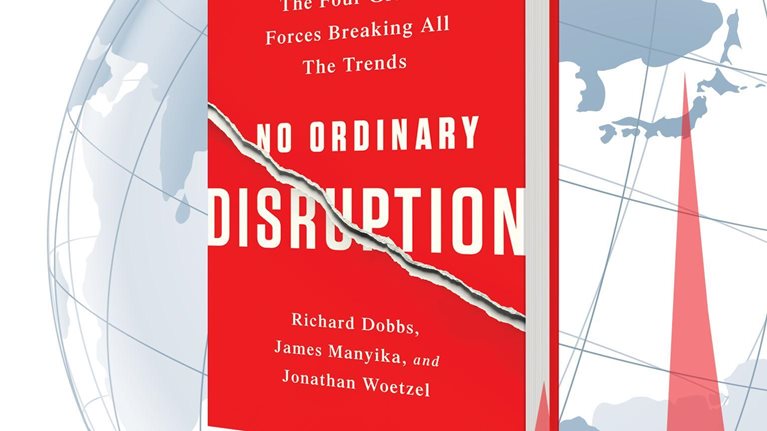McKinsey Classics
Timeless insights—and why they’re as relevant as ever
How to put your money where your strategy is
-
Companies face a dynamically changing environment that demands an equally dynamic resource allocation strategy. Four steps can help organizations avoid resource allocation inertia.
Choosing the right path to growth
-
Innovation is alluring, but it’s not the only path to growth. Most above-average growers pursue multiple growth paths. Getting the sequence right can help ensure better organic growth.
Risk: Seeing around the corners
-
Executives who systematically examine how risk can cascade across a company’s value chain can more successfully anticipate and prepare for second-order effects.
Closing the gender gap: A missed opportunity for new CEOs
-
CEO transitions present a crucial opportunity to boost gender diversity in leadership. Companies can focus their efforts on a few critical areas so that women can fulfill their full potential.
Unleashing the power of small, independent teams
-
Small teams are the lifeblood of a successful, agile corporation. Companies can empower these teams by providing the right support, eliminating red tape, and equipping managers to lead their teams effectively.
Why leadership development programs fail
-
Organizations need strong leaders, but their leadership development efforts often fall short. Avoiding four common mistakes can help companies develop stronger, more capable leaders.
We’re all marketers now
-
Today’s consumer environment is only getting more complex, and consumers ever savvier. Successful companies meet the moment by extending the marketing function across the entire organization.
Why digital strategies fail
-
Many companies underestimate the disruptive power of digital. Five pitfalls are particularly problematic.
The board’s guide to better risk management
-
Business models today are constantly evolving in the face of rapid, volatile change, and risk functions need to evolve as well. Three dimensions of better risk management can help.
Perfecting people management for long-term organizational health
-
Traditional performance metrics often encourage short-term gains over long-term health. Three core principles can help organizations perfect their people-management systems for the long haul.
The power of big moves in crafting a successful strategy
-
Leaders are often thwarted in the strategy room by biases, competing agendas, and unrealistic expectations. Five big moves can help bypass these common pitfalls and set a winning strategy.
A leader’s guide to planning effective meetings
-
Better decisions require better meetings. Start by determining the goal of the call, then make sure roles and responsibilities are clearly defined.
How exceptional leaders lead
-
Adopting a new behavior—and making it stick—requires a shift in mindset. Five simple exercises can help leaders become more aware of their own mindsets and better lead their teams.
Democratizing the role of corporate strategist
-
Strategy can no longer be the purview of one person. An endless array of competing forces demands a dynamic strategy team. Three tips can help you get there.
The successful behaviors of effective leaders
-
Leadership development remains as crucial as ever to maintaining a healthy organization. Four essential traits can help you focus your leadership efforts.
Digitizing the risk function for the modern era
-
Building a digital risk program is risky business. But significant improvements in risk management though digitization can help mitigate concerns that enable companies to achieve real value.
Confronting complexity during transformative times
-
When faced with disruption, the instinct is often to lean on old habits. Five practices can help leaders embrace complexity and lead with agility—transforming their teams and themselves.
The strategic moves behind successful new CEOs
-
Our research of new CEOs’ tenures shows that fortune favors the bold. CEOs who make a set of moves quickly and adopt an outsider’s perspective can greatly boost the odds of their success.
Perfecting your approach to personalized marketing
-
Targeted communications can boost customer loyalty and spur growth—if you know how to use them. Learn how to make the most of your personalized-marketing efforts.
How your company’s strategy can beat the odds by embracing uncertainty
-
Knowing your odds of success before you launch a strategy can go a long way toward ensuring you execute it well. By embracing probability, you can change the odds in your favor and help set a winning strategy.
Overcoming bias in machine learning
-
Machine learning holds immense promise for businesses that can effectively harness the powerful technology, but it is only as good as the data it’s working from—and, perhaps even more important, the people inputting the data.
Redefining the frontline manager
-
Frontline managers are responsible for an outsize proportion of companies’ workforces—nearly two-thirds—yet they are often hobbled under the weight of administrative work, endless meetings, and various nonmanagerial tasks such as traveling or training.
The CFO’s guide to digitizing the finance function
-
A company’s digital core is increasingly becoming the purview of the CFO, who must work in lockstep with the CEO to help lead the kind of digital- and AI-transformation efforts that many organizations today are pursuing.
The case for emotional intelligence in customer service
-
Moments of truth in customer service—that spark between customers and frontline employees—still abound in today’s customer journey, and they represent a crucial opportunity for building brand loyalty and business value.
Are creative companies profitable companies?
-
This past week, the Cannes Lions International Festival of Creativity held its 70th annual ceremony honoring the world’s top advertising, marketing, and communications companies. And while no CEO worth their salt would deny the importance of creativity in the workplace, does creativity translate into actual business value? That’s what the authors of this classic McKinsey article set out to find.
Increasing your appetite for risk
-
Amid today’s ever-changing volatility, it’s all companies can do just to stay grounded.
Getting executive transitions right
-
As more corners of the corporate world increasingly become “table stakes,” executive transitions are about the biggest bet a company can make.
Not all systems and data are created equal
-
Some systems and data are more important than others. Some are more exposed to risk, and some are more likely to be targeted by criminals.
Dispelling the mystery of zero-based budgets
-
Back in 2014, many companies found that their revenues were growing more slowly than their sales, general, and administrative (SG&A) costs were. Controlling those costs became essential. At such times, executives often think they have to make large, arbitrary budget cuts, no matter how imprudent or unsustainable. But a McKinsey team argued that companies had a better choice: zero-based budgeting (ZBB).
How a great customer experience creates value
-
Executives understand that successful customer-centric strategies create satisfied customers, engaged employees, greater loyalty, and a lower cost to serve.
How to be a better leader
-
To make 2023 more fulfilling, read our 2016 classic “Want to be a better leader? Observe more and react less.”
Digitizing the risk function
-
Read our classic 2017 article “Digital risk: Transforming risk management for the 2020s,” which focuses on the banking industry but has many lessons for every kind of business.
The real meaning of shareholder value
-
Creating shareholder value doesn’t mean maximizing short-term profits. Read “The real business of business” and the other articles in the 20th-anniversary edition of McKinsey on Finance.
Getting beyond bureaucracy in human resources
-
There’s an antidote to questionnaire overload and multipage templates: understanding their strategic purpose. Read our classic 2015 article “Getting beyond bureaucracy in human resources.”
Keeping customers happy in hard times
-
Learn what’s really important to consumers. Read our classic 2008 article “Maintaining the customer experience.”
How the best labs manage talent
-
Of the practices that influence an organization’s productivity, talent management is often the one most in need of improvement. Read our 2011 classic “How the best labs manage talent.”
The risk function of the future
-
Banks exist to lend, and every lending decision is a risk decision. That’s why the basic trends and responses in bank risk can reveal the future of the risk function throughout big business. In 2016, McKinsey published an article explaining these trends and their impact. It’s well worth reading today.
A more productive environment for everyone
-
Let’s say you’re facing a “difficult conversation”—for example, informing a colleague that you’ll have to pull out of an important meeting the two of you have been planning for weeks. You start by baldly stating that you can’t attend it. Behavioral research shows that the other person’s brain then goes on defense, diverting scarce mental energy by launching an automatic “snap, sulk, or skulk” mode. Emotionally sophisticated neural machinery shuts down, and the quality of work declines.
Four principles of effective storytelling on social media
-
Scott Harrison was a successful nightclub and fashion promoter in New York, but he felt spiritually bankrupt. Leaving his business behind, he decided to serve as a photojournalist on a floating hospital that provided free medical care in poor countries. Such stories help build organizations and lead them through times of change. To learn the four principles that make these narratives effective, read our 2011 classic “The power of storytelling: What nonprofits can teach the private sector about social media.”
The future of global economic growth
-
In 2014, to celebrate McKinsey Quarterly’s 50th anniversary, the McKinsey Global Institute (MGI) examined the future prospects for economic growth throughout the world. Read “A productivity perspective on the future of growth.”
How to make scenario planning more effective
-
McKinsey has been fascinated for years by the cognitive biases that explain how people make economic decisions, such as investments. Learn how to control them: read “Overcoming obstacles to effective scenario planning.”
Having difficulty keeping your employees?
-
The job market will probably continue to be a challenge for employers in the new year, which means that your workplace—whether remote or in-person—needs to be as comfortable, collaborative, and welcoming as possible if you are to retain workers. Read our 2007 classic “Building the civilized workplace.”
The soft side of growth
-
Most companies can anticipate the strategic side of growth—where, when, and how it happens—but many underestimate its organizational side. Read our 2011 classic article ‘Preparing your organization for growth.’
How companies use agile to transform their data infrastructure and processes
-
In the search for ways to accelerate data programs, some advanced companies have drawn on the agile techniques originally used to develop software.
Managing the people side of risk
-
McKinsey’s research and experience have found not only that the companies with the strongest risk cultures have specific traits but also that there are effective ways to strengthen them. Read the 2015 classic ‘Managing the people side of risk.’
What kind of strategist does your company need?
-
Different kinds of companies need different kinds of chief strategy officers. To learn what kind your company needs, read ‘Rethinking the role of the strategist.’
Teamwork at the top
-
Better teams develop better strategies, implement them more successfully, and inspire confidence among stakeholders. To learn how your top team can improve its performance, not just its strategies, read our 2001 classic ‘Teamwork at the top.’
Data analytics for top teams
-
To learn how top teams can manage analytics, read our 2016 classic ‘Making data analytics work for you—instead of the other way around.’
The four global trends
-
Four powerful forces are transforming the world: urbanization in developing economies, faster technological change, aging, and a new kind of globalization. Learn about them in our 2015 book excerpt ‘The four global forces breaking all the trends.’
















































